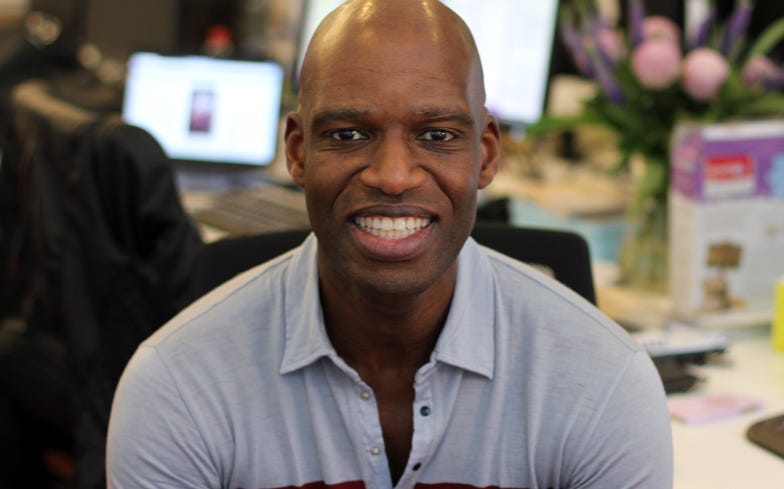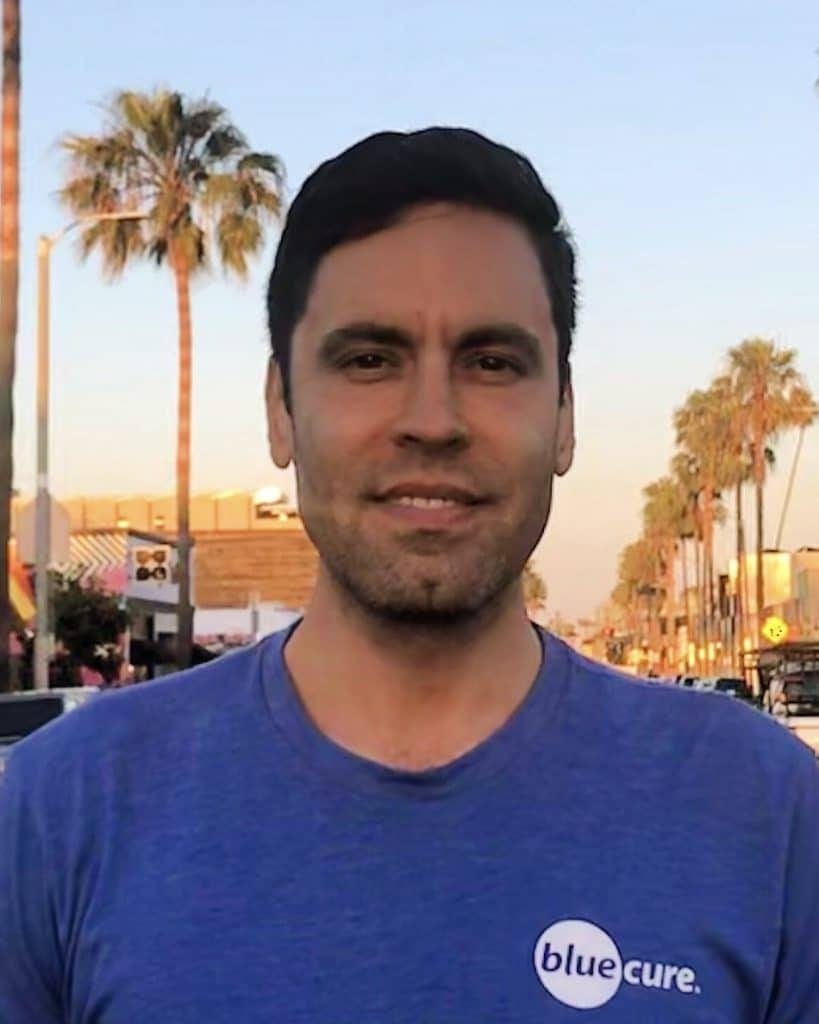BREAKING NEWS! A Seinfeld-style cancer about nothing? Or is there something more serious to Kramer's 'Stage 1' Prostate Cancer?
Enter Stage 1? But what's really going on?
By Howard Wolinsky
I used to describe my prostate cancer—a Grade Group 1/Geleason 6—as being like the TV comedy “Seinfeld,” a show about nothing.
Now, Michael Richards, who played Jerry Seinfeld’s mooching, goofy neighbor Kramer, who always stumbling in and out of Jerry’s NYC apartment and grabbing a piece of fruit, has told People Magazine that he has survived a near-fatal diagnosis of “Stage 1” prostate cancer.
Fatal?
If Richards really has Stage 1 disease—better known to us as Grade Group 1/Gleason 6 disease—he is dramatically overstating his condition to PEOPLE, and for some reason, PEOPLE bought it—exclusively—though ironically, People’s editor came out of the Gleason 6 prostate cancer closet himself (see below) and should know something doesn’t sound right.
Richards describes a harrowing journey with “Stage 1” prostate cancer—which is really a cancer about nothing.
As Jerry Seinfeld might ask: What’s the deal with Stage 1 prostate cancer?
Healthline answers.
Stage 1 is the least advanced form of prostate cancer. Cancer in this stage is small and hasn’t spread past the prostate gland. It’s characterized by a PSA of less than 10 ng/mL, a grade group score of 1, and a Gleason score of 6. Stage 1 prostate cancer has a 5-year survival rate of nearly 100 percent.
Maybe Kramer, er Richards, got his story wrong. Maybe he meant he had a more advanced version of the disease? He plays a doofus on TV, not a doctor.
In his soon-to-be-released memoir, “Exits and Entrances,” he lays it out in dramatic fashion about having been “diagnosed with prostate cancer in the summer of 2018 after a routine checkup showed high PSA levels. He was diagnosed with stage 1 prostate cancer.”
"I thought, 'Well, this is my time. I'm ready to go,'" he tells PEOPLE, of receiving the news. "But then my son came to mind just a few seconds later, and I heard myself saying, ‘I've got a 9-year-old, and I'd like to be around for him. Is there any way I can get a little more life going?’"
"It had to be contained quickly," he says. "I had to go for the full surgery. If I hadn't, I probably would have been dead in about eight months."
(Sidenote: I can’t help but wonder if the surgeon added a Junior Mint for its curative properties, as what happened in a Seinfeld episode where Jerry and Kramer attend surgery and Kramer accidentally tosses a Junior Mint into the patient’s body cavity and saves the patient’s life and staves off the patient’s death from infection. Junior Mints are refreshing and healing, apparently.)
I wrote a few months ago about Jeremy Helligar, People’s editor, who came out of the closet and went public with the fact that he is on Active Surveillance for prostate cancer. I would have expected that People fact-checked Richards’ “Stage 1” diagnosis.
People Magazine exec editor comes out of the Active Surveillance 'closet'
·By Howard Wolinsky High-profile People Magazine Executive Editor Jeremy Helligar came out of the ”AS closet” in Facebook and in People, announcing this week that he is on AS for low-risk Gleason 6 prostate cancer. This is a breakthrough for Active Surveillance, a cancer management strategy avoiding side effects of aggressive therapies that has been gain…
This is all a disservice to the public. The media often gets confused about the facts about prostate cancer and probably those of other cancers.
Actors are not doctors. Like the rest of us, they panic and may not be hearing things right after we’re diagnosed with the “Big C,” even a lame one like Gleason 6.
If Richards had “Stage 1” cancer could a doctor have told him he had eight months to live if he didn’t have an emergency prostatectectomy? Anything is possible. But I hope not.
Brian Helfand, MD, PhD, Chief of the Division of Urology and the Ronald L. Chez Family and Richard Melman Family Endowed Chair at NorthShore University Health System at NorthShore University Health Systems near Chicago, suggests that Richards is getting his terminology confused.
He said: “I think he was referring to the cancer being confined to the prostate. Also, I’m not sure what kind of prostate cancer kills in 8 months lol,”
I have written often about how high-profile people have rarely shared that they are on AS, but, strangely, do admit to having been treated.
There are complicated reasons for this. Having prostate cancer—”an old man’s disease”—may conflict with an image of vitality and youth they are trying to project.
Also, one of the first things actors have to do when going on a big project is undergo a physical. Backers of big productions—at least historically—might find a key player living with prostate cancer a deal breaker because they don’t understand Stage 1 prostate cancer. so actors often say their cancer was detected early and aggressively treated, and they move on with their lives.
Read more here about A-listers and prostate cancer: https://www.medpagetoday.com/special-reports/apatientsjourney/82226
British actor Colin McFarlane, who appeared in the Dark Knight movie series, is a rare actor who gambled with his career by sharing his Active Surveillance story:
Colin McFarlane, British actor of ‘Dark Knight’ fame, diagnosed with low-risk prostate cancer, taking on high-profile role in PCa awareness
By Howard Wolinsky In the “Dark Knight” Batman series, Police Commissioner Gillian Loeb, played by British actor Colin McFarlane, was poisoned by none other than the Joker, the archest of archvillains in the Batman Universe. Bad break for the Commish, right?
Richards, if he indeed had Grade Group 1 prostate cancer, would have made a great ambassador for low-grade cancer. So we’ll have to keep looking for A-listers like McFarlane, who are well-informed and willing to share their AS story.
Don’t miss the Prostate Cancer Research Institute update on AS
PCRI has just launched a don’t miss update on Active Surveillance.
Listen to my heroes Dr. Mark Scholz and Alexandra Scholz share the latest on AS and Gleason 6 prostate cancer:
Question: Who shares short shorts?Answer: Active Surveillance Patients International (ASPI) does.
An hour-long webinar may be too much for some guys to watch. Attention spans can be short. And nature can call often for those with enlarged prostates.
So Bill Manning, the new executive director of ASPI, for the fist time has carved up a webinar into bite-sized video shorts. Check them out here: https://www.youtube.com/@aspi2020/shorts .
As a frequent moderator, I feel I have been left on the cutting-room floor.
More shots are coming
PCa—not just for old men: Join ASPI webinar on May 25—and bring your sons and grandsons
By Howard Wolinsky
Prostate cancer typically is diagnosed in men in their late 60s. It’s considered a disease of aging, an old man’s disease.
But my friend Gabe Canales tells a different story.
He was diagnosed when he was 35. At an upcoming webinar for Active Surveillance Patients International (ASPI), Canales will share his prostate cancer experience and how it can help you and your sons and grandsons. Why not invite the young men to join our oldsters?
The webinar will be at noon Eastern Saturday, May 25. Register Here: https://tinyurl.com/3sexhrrp
(Gabe Canales, of Blue Cure, https://bluecure.org/)
Unsolicited testimonial from WN
"I support your work because I am a recent patient currently on Active Surveillance. The information you provide is very helpful in understanding and answering questions about the AS process. Thank you for your attention to this important topic."






Those of us who understand PCa can see right through this. People’s Magazine perhaps had more interest in a sensational story regardless of its accuracy. No wonder I never was a fan of Peoples Magazine,
Howard,
Your article on the Kramer announcement was hysterical. Larry David should hire you.